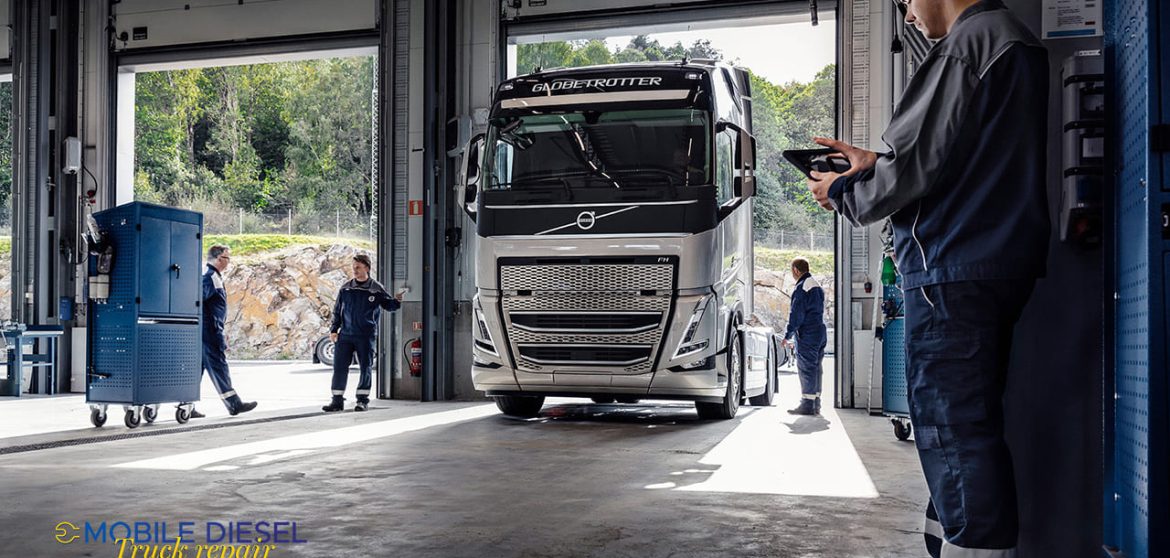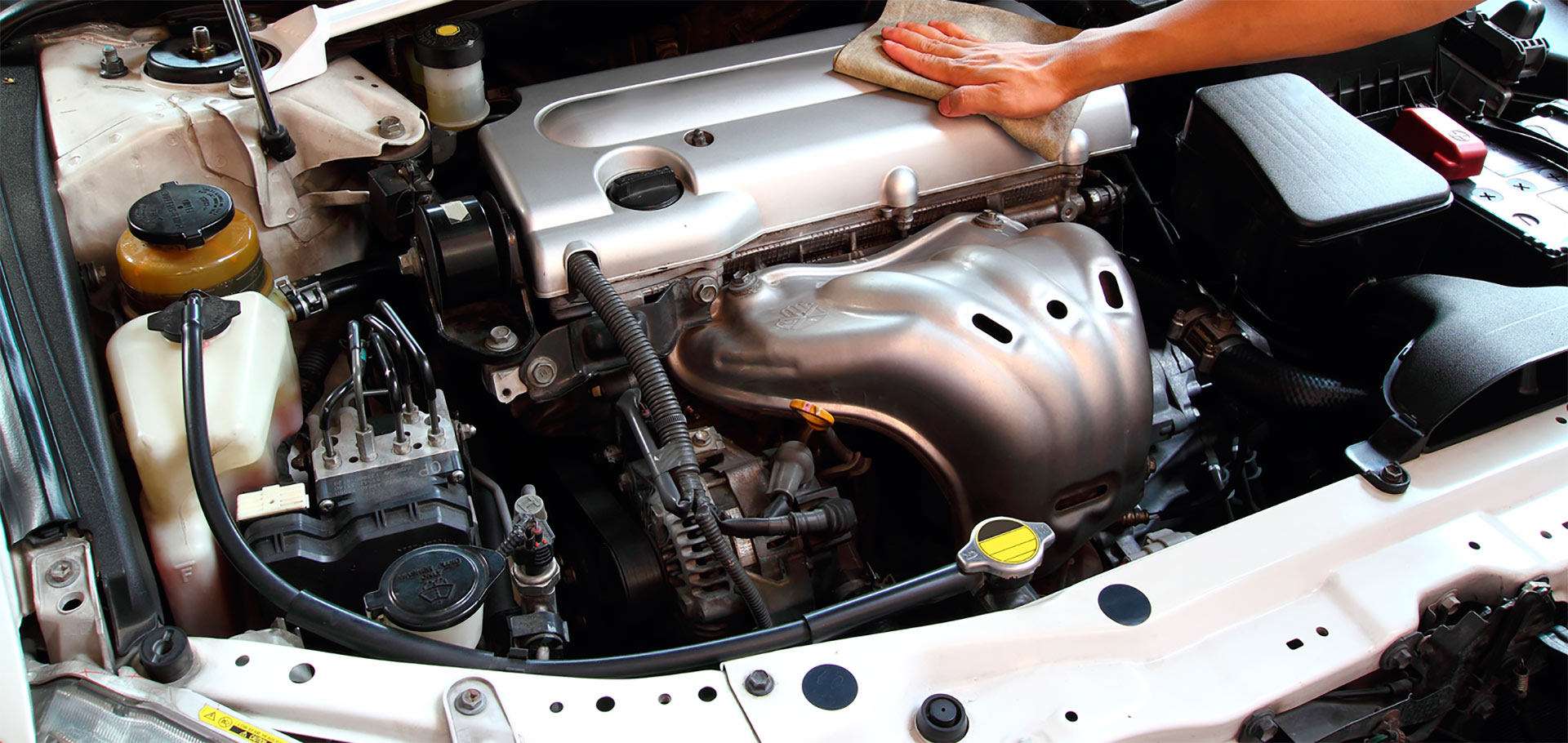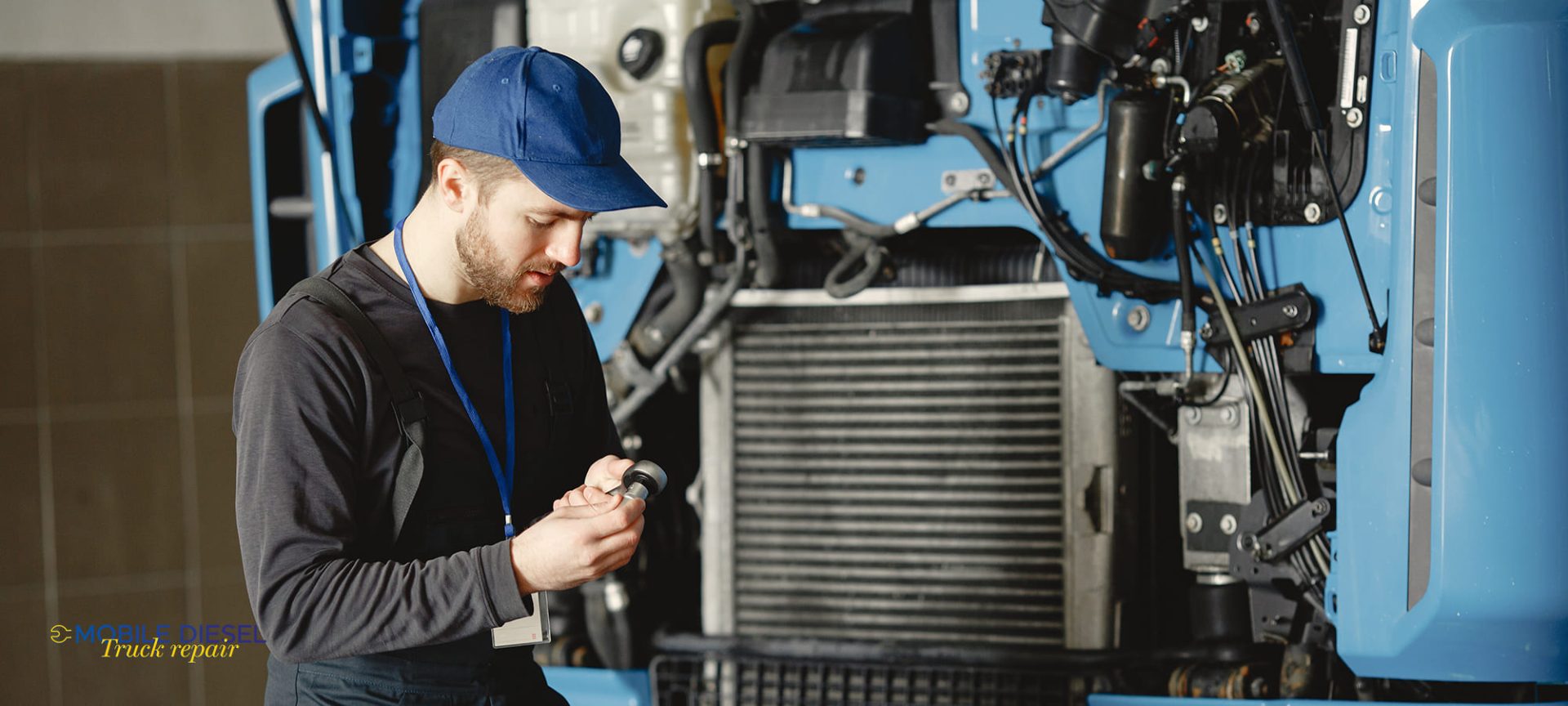
Commercial Truck Preventive Maintenance 2024- Key Tips
Preventive maintenance is something that makes sure your commercial truck is working well. Preventive maintenance includes the things related to truck issues and fixing those issues on time. Try to fix the minor issues timely, if you keep ignoring the minor issues then slowly they will convert into big issues which can cause money wastage and even a risk to your life. The purpose of this post is to aware of commercial truck issues, how important is to understand preventive maintenance, and how preventive maintenance can prevent you from big accidents.
Understanding Preventive Maintenance for Commercial Trucks
Key Components to Monitor
- Engine (oil, air filters, spark plugs, belts, hoses)
- Transmission (fluid, filters, seals, clutch)
- Brakes (air brakes, drums, rotors, pads, calipers)
- Suspension (shocks, bushings, ball joints, airbags)
- Steering (tie rods, steering linkages, power steering fluid)
- Tires (tread depth, pressure, alignment, rotation)
- Electrical system (batteries, alternators, wiring, lights)
- Cooling system (radiator, water pump, hoses, coolant)
- Exhaust system (manifold, muffler, catalytic converter)
- Chassis and frame (cracks, corrosion, lubrication)
Establishing a Maintenance Schedule
Creating a detailed plan for regular maintenance sets the foundation for success. Check how often the manufacturer suggests and what is commonly done in the industry. Also keep considering some specific situations like how much load you generally put in your truck, what type of terrain you are driving on, how many miles you’ve driven, and what is the age of your truck or vehicle.
Establish reminders that can be customized to help you stick to your budget and plan for the future. At the same time, being able to adjust schedules helps make changes based on how long parts last, as shown by data and patterns. By creating personalized maintenance plans for each vehicle, fleet managers can predict repairs in advance and prevent any service disruptions.
Check Out Our Truck Repair Services
Benefits of Preventive Maintenance
- Reduced unplanned downtime and breakdowns
- Extended lifespan of vehicles and components
- Improved fuel efficiency and reduced operating costs
- Enhanced safety for drivers and other road users
- Increased resale value of well-maintained vehicles
- Compliance with regulatory and manufacturer guidelines
Fluid Checks and Changes
If you want your truck to work well for a long time then you need to keep checking the performance of your truck regularly. Check your truck’s gear system, steering, and other parts if they working well or not.
Fluid checking is important to maintain truck performance, as the fluid changing makes sure that all the parts of your truck are lubricated correctly. If you do not change fluid for a long time then it can cause various issues like metal shavings and sludge. It is important to get expert guidance about when you should change fluids.
Tire Maintenance Strategies
- Regular tire pressure checks and adjustments
- Tire rotation and realignment at recommended intervals
- Tread depth monitoring and timely tire replacements
- Proper tire inflation based on load and operating conditions
- Use of tire sealants or tire pressure monitoring systems (TPMS)
- Alignment checks and adjustments to prevent irregular wear
- Matching tire types and sizes across axles for consistent performance
Check Out Our Truck Repair Services
Inspection Protocols
Creating thorough inspection schedules helps professionals catch minor issues early. We regularly check different systems for any issues using visual, physical, and diagnostic scans. Recording the main points of every inspection helps track the overall condition of equipment over time.
Deal with problems right away based on how serious they are, while considering how easy it is to fix them. Personalized plans help to better understand the overall health of the fleet and ensure maintenance is done consistently and with more knowledge in the long run.
Data-Driven Maintenance Approaches
Using telematics and predictive analytics changes maintenance from reacting to anticipating needs. Instant diagnostics and past performance data show unusual part usage, helping to improve schedules.
Prediction programs find which repairs are most important based on how maintenance has been done in the past. Investing in technology and training pays off in the long run by improving reliability and saving money. Making decisions based on information improves the overall effectiveness of the program.
Training and Education for Maintenance Teams
Experienced staff is essential to the program. Further education includes learning about manufacturers’ specifications, and new techniques, and understanding different components.
Having professional certifications shows that you are skilled at handling difficult situations and working well with others. Sharing knowledge helps people improve continuously. Training helps ensure that fleet vehicles are reliable and maintained by skilled technicians.
Check Out Our Truck Repair Services
Documentation and Record-Keeping
Good documentation makes it easier to maintain and analyze performance. Logs, whether digital or paper, gather all activity details in one place. Software for managing fleet maintenance combines information on usage, repairs, and servicing to create accessible records. In addition to recording tasks, make sure to also keep track of important operation and function measurements.
Keeping data safe by making copies of it. Looking at documents in a cycle helps find patterns and repetition to create better strategies. Documentation helps with compliance and gives important insights to improve efficiency and extend the lifespan of assets.
Adapting to Seasonal Changes
Changing environmental situations requires adaptable maintenance. In colder weather, make sure to protect your vehicle from freezing by using the right amount of antifreeze, and fluids designed for low temperatures, maintaining proper tire pressure, and checking the battery and alternator.
During the warmer months, air conditioning, tire wear due to increased resistance, and overheating issues need special attention. Big differences in seasons in different areas mean schedules and evaluations may need to be adjusted. Understanding how climate cycles affect driver behaviors and transportation needs helps ensure that vehicles are ready for any weather conditions.
Cost-Benefit Analysis
Communicating the prudence of dedicating resources to proactive maintenance initiatives requires a meticulous cost-benefit analysis that compares the financial outlay to the expected return on investment. This involves accurately calculating the hard costs related to labor, replacement parts, and equipment, as well as examining the indirect expenses associated with production delays and lost productivity stemming from unexpected equipment failures.
While preventative maintenance undoubtedly requires upfront capital allocation, it commonly proves to save substantial money over the long term by dramatically reducing unscheduled downtime, extending the functional lifespan of components, optimizing fuel efficiency, and ensuring critical safety measures remain in compliance.
The analysis should weigh the initial maintenance costs against potential profit margins, factoring in delayed capital expenditures, upgraded replacement schedules, enhanced efficiency, and sustainability initiatives.
Fleet managers rely heavily on historical data, reliability analytics, and usage metrics to comprehensively analyze maintenance programs and identify the solutions that maximize fiscal returns by judiciously leveraging resources to achieve better operational outcomes than the initial costs.
Check Out Our Truck Repair Services
OEM Guidelines and Recommendations
- Follow the recommended service intervals and maintenance schedules provided by the manufacturer
- Use genuine OEM parts and fluids whenever possible
- Adhere to prescribed torque specifications and tightening sequences
- Comply with manufacturer-specified procedures for repairs and replacements
- Utilize diagnostic tools and software recommended or provided by the manufacturer
- Regularly update vehicle software and firmware as recommended
- Attend manufacturer-provided training programs for technicians
- Maintain records and documentation as required by the manufacturer
- Follow safety guidelines and precautions outlined in service manuals
- Seek guidance from the manufacturer’s technical support resources when needed
Continuous Improvement Strategies
- Regularly review and analyze maintenance data to identify areas for improvement
- Implement feedback loops to gather input from technicians and drivers on maintenance issues
- Conduct regular audits and assessments of maintenance processes and procedures
- Stay up-to-date with industry best practices and emerging technologies
- Encourage continuous learning and professional development for maintenance teams
- Implement a system for tracking and addressing recurring issues or component failures
- Explore opportunities for process automation and digitization to streamline maintenance workflows
- Collaborate with manufacturers and industry peers to share knowledge and best practices
- Establish key performance indicators (KPIs) to measure and track maintenance program effectiveness
- Foster a culture of continuous improvement by recognizing and rewarding innovation and efficiency
Regulatory Compliance in Maintenance
Following rules set by the government, industry, and environment helps avoid penalties and legal issues. Always try to carefully handle store, and dispose of hazardous materials according to regulations. Documentation checks if rules are followed while training helps technicians understand changing regulations.
Not following the rules puts licenses at risk, leads to penalties, and jeopardizes safety measures. Putting rules first in programming, procedures, audits, and training ensures that the fleet is reliable, workers are taken care of, and sustainable practices are followed.
Check Out Our Truck Repair Services
Conclusion
To make sure commercial trucks are reliable, you need to do thorough preventive maintenance. This requires careful planning, using data to make decisions, having skilled workers, and being determined to improve.
Creating a strong foundation helps reduce downtimes and extend the life of assets. Using a variety of methods helps improve how well things work and keep them safe for long-term success.
FAQ
What is truck preventive maintenance?
Truck preventive maintenance refers to a systematic and proactive approach to maintaining commercial trucks to prevent potential issues and ensure their optimal performance. It involves regular inspections, servicing, and replacement of parts to identify and address potential problems before they lead to breakdowns or major repairs.
What maintenance needs to be done on a truck?
Maintenance tasks for trucks include routine checks and servicing of critical components such as the engine, transmission, brakes, tires, suspension, and electrical systems. Fluid changes, filter replacements, lubrication, and thorough inspections are integral to preventive maintenance. The specific maintenance needs can vary based on the truck’s make, model, and usage.
Why is preventive maintenance needed?
Preventive maintenance is needed to enhance the reliability, safety, and longevity of commercial trucks. By addressing potential issues early on, preventive maintenance helps avoid unexpected breakdowns, reduces the risk of major repairs, and extends the lifespan of the vehicle. This proactive approach also contributes to improved fuel efficiency and overall cost savings over time.
Check Also:
How to Choose the Right Truck Repair Service for Your repair Fleet
Essential Truck Maintenance Tips Every Owner Should Know
What to Do if You Have an Extensive Issue While on the Road
Roadside Assistance Truck Repair Tips
Contact us
Preventive maintenance for commercial trucks involves a proactive approach to upkeep, focusing on regular inspections and servicing to prevent breakdowns and extend the lifespan of vehicles. It encompasses tasks like fluid checks, tire rotations, and brake inspections at scheduled intervals. By addressing potential issues before they escalate, preventive maintenance enhances safety, reduces downtime, and ultimately saves costs for businesses reliant on their commercial truck fleets.
Phone: +469 -617-2028
Email: contact@truckrepairexpert.com



